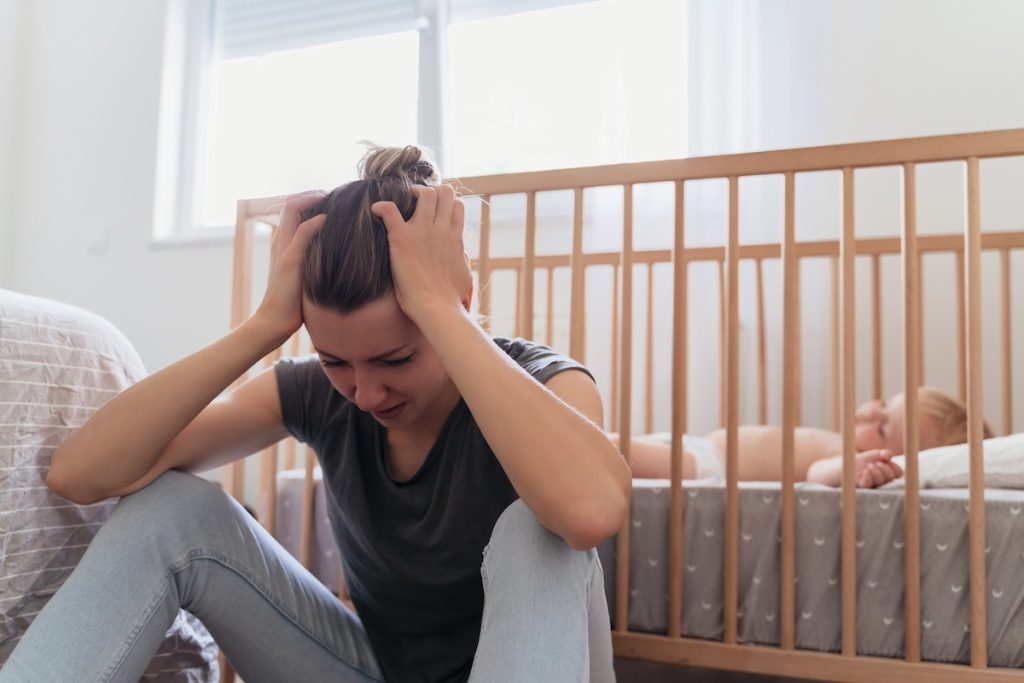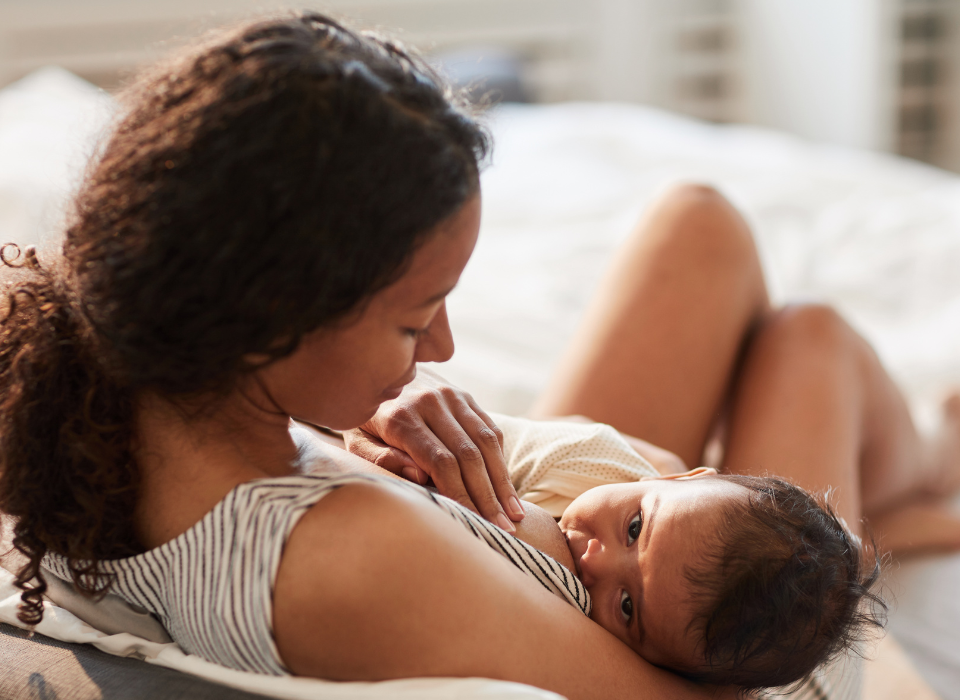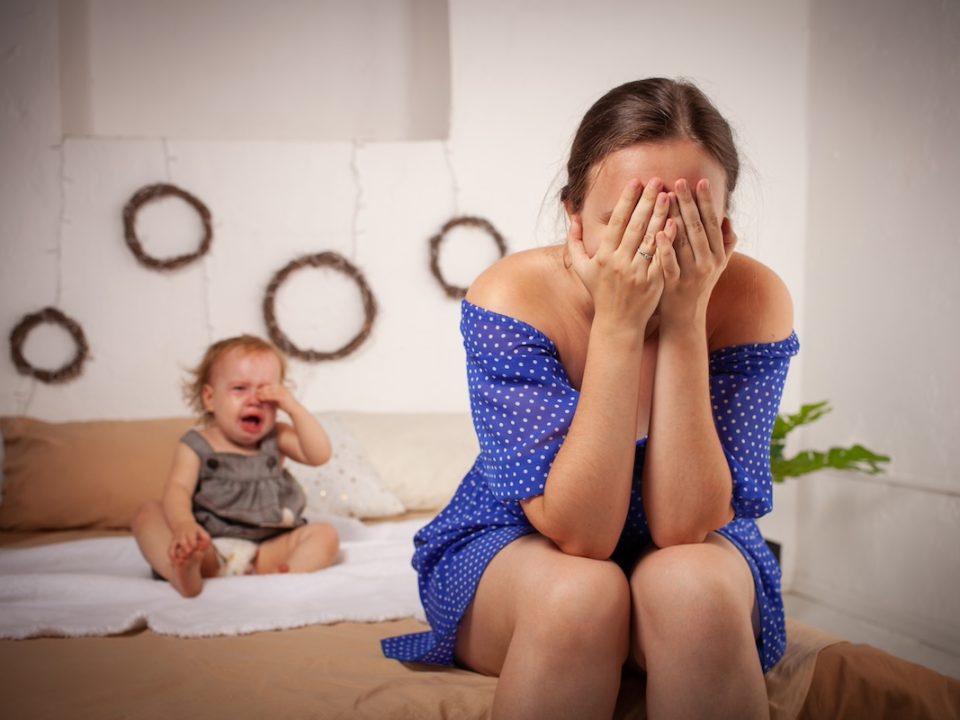
How to Deal with Postpartum Anxiety: A Comprehensive Guide
August 20, 2024
Understanding Individual Counseling in Behavioral Health
August 27, 2024Postpartum anxiety is a significant concern for many new mothers, affecting their ability to enjoy and manage the early months of motherhood. In this blog, we’ll explore the duration and onset while addressing questions such as “How long does postpartum depression last,” “Postpartum anxiety, how long does it last,” and “How long after birth can postpartum anxiety start.”

How Long Does Postpartum Depression Last?
While our primary focus is on postpartum anxiety, it’s essential to understand its close relation to postpartum depression (PPD). Both conditions can significantly impact a new mother’s mental health, though they manifest differently.
Postpartum depression can last anywhere from a few weeks to several months or even longer if left untreated. According to the American Psychological Association, many women start to feel relief from PPD symptoms within three to six months with appropriate treatment, which can include therapy, medication, and support groups. However, symptoms can persist for a year or more for some women. Early intervention is crucial in reducing the duration and severity of PPD, making it essential for new mothers and their families to seek help as soon as symptoms are recognized.
Postpartum Anxiety: How Long Does It Last?
Postpartum anxiety, much like PPD, varies widely in its duration depending on individual circumstances, the severity of the symptoms, and the treatment received. Generally, symptoms of postpartum anxiety can begin to subside within a few months with appropriate treatment, but in some cases, they can persist for a year or more.
Effective treatments for postpartum anxiety include cognitive-behavioral therapy (CBT), medication, and support groups, similar to treatments for PPD. Early recognition and intervention are crucial to managing and minimizing the duration. Without treatment, it can continue to impact a mother’s mental health, daily functioning, and ability to bond with her baby.
How Long After Birth Can Postpartum Anxiety Start?
Understanding the timeline for the onset of postpartum anxiety is crucial for early identification and intervention. Postpartum anxiety can start at any point after childbirth. It most commonly begins within the first few weeks to months after delivery, but it can also develop later, sometimes even a year after the baby is born.
Several factors can contribute to the timing of postpartum anxiety onset, including hormonal changes, sleep deprivation, the stress of adjusting to new motherhood, and personal or family history of anxiety or depression. Recognizing the signs and symptoms early, such as excessive worry, irritability, restlessness, and physical symptoms like a racing heart or shortness of breath, can help mothers seek treatment promptly.
The Importance of Seeking Help
Postpartum anxiety is a severe condition that requires attention and care. Left untreated, it can affect a mother’s well-being, ability to care for her baby, and overall quality of life. Mothers, their partners, and families need to understand that experiencing anxiety after childbirth is not a sign of weakness or failure but a common and treatable condition.
New mothers should feel empowered to speak openly about their mental health and seek professional help when needed. Healthcare providers can offer support through therapy, medication, and other resources to help manage and reduce anxiety symptoms.
Supporting New Mothers
Family members and friends play a vital role in supporting new mothers experiencing postpartum anxiety. Providing emotional support, helping with daily tasks, and encouraging professional help can make a significant difference. Creating a supportive and understanding environment allows new mothers to prioritize their mental health and well-being without guilt or shame.
Postpartum anxiety is a challenging but manageable condition that can vary in duration and onset. By understanding how long postpartum depression can last, recognizing the potential length of postpartum anxiety, and knowing when it can start, new mothers and their families can better navigate this difficult period. Early intervention and support are crucial in reducing the impact and helping new mothers enjoy their journey into motherhood with greater confidence and peace of mind.
____________________________________________________________________________
Looking for treatment for an eating disorder, anxiety, depression, trauma, or postpartum mood disorder?
Evolve Counseling Services is a specialized team of Licensed Therapists providing treatment in Paoli.



